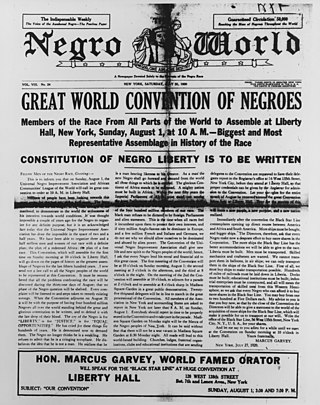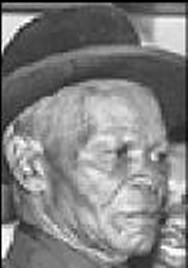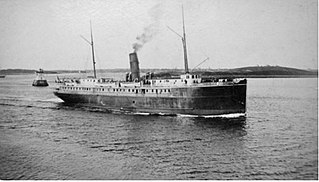Related Research Articles

Marcus Mosiah Garvey Jr. was a Jamaican political activist. He was the founder and first President-General of the Universal Negro Improvement Association and African Communities League, through which he declared himself Provisional President of Africa. Garvey was ideologically a black nationalist and Pan-Africanist. His ideas came to be known as Garveyism.

The Universal Negro Improvement Association and African Communities League (UNIA-ACL) is a black nationalist fraternal organization founded by Marcus Garvey, a Jamaican immigrant to the United States, and his then-wife Amy Ashwood Garvey. The African Nationalist organization enjoyed its greatest strength in the 1920s, and was influential prior to Garvey's deportation to Jamaica in 1927. After that its prestige and influence declined, but it had a strong influence on African-American history and development. The UNIA was said to be "unquestionably, the most influential anticolonial organization in Jamaica prior to 1938," according to Honor Ford-Smith.

Negro World was the newspaper of the Marcus Garvey's Universal Negro Improvement Association and African Communities League (UNIA). Founded by Garvey and Amy Ashwood Garvey, the newspaper was published weekly in Harlem, and distributed internationally to the UNIA's chapters in more than forty countries. Distributed weekly, at its peak, the Negro World reached a circulation of 200,000.

Henrietta Vinton Davis was an elocutionist, dramatist, and impersonator. In addition to being "the premier actress of all nineteenth-century black performers on the dramatic stage", Davis was proclaimed by Marcus Garvey to be the "greatest woman of the Negro race today".

Brown's Town is one of the principal towns in St. Ann Parish, Jamaica. In 1991, its population was 6,762. The town is a market and road center in an agricultural region.
Amy Ashwood Garvey was a Jamaican Pan-Africanist activist. She was a director of the Black Star Line Steamship Corporation, and along with her former husband Marcus Garvey she founded the Negro World newspaper.

William Wellington Wellwood Grant OD was a Jamaican labour activist. He was known as "St. William Grant", "St." presumably meaning "Sergeant" in reference to his military or UNIA service.

Emory J. Tolbert (1946-2022) was an American historian, educator, and activist. His scholarship centers on Marcus Garvey and Garveyism, as well as wider aspects of African American history.
The African Times and Orient Review was a pan-Asian and pan-African journal launched in 1912 by Dusé Mohamed Ali, an Egyptian-British actor and journalist, with the help of John Eldred Taylor. It is thought to have been "Britain's first Black 'campaigning' journal."
For a history of Afro-Caribbean people in the UK, see British African Caribbean community.
The following is a timeline of the history of the city of Kingston, Jamaica.
The Marcus Garvey People's Political Party is a political party in Jamaica formed by the merger of two minor parties. The ideology associated with the party is socialist, republican and Pan-Africanist. The party is named after Jamaican National Hero, Marcus Garvey. On election ballots, the party campaign as MG/PPP or simply PPP.

James Johnston was a British missionary, early photographer, doctor and explorer. He created his own mission at Brown's Town in Jamaica. He took six Jamaicans to help him on his journey across central Africa from west to east to cross the continent and rediscover David Livingstone's mission. Johnston's book and photographs record the journey and his observations on many things but particularly overly ambitious missionaries. Johnston later created slideshows to market Jamaica to potential tourists.

Black Cross Nurses is an international organization of nurses which was founded in 1920, based upon the model of the Red Cross. The organization was the women's auxiliary of the Universal Negro Improvement Association and African Communities League and was established to provide health services and education to people of African descent.
Laura Adorkor Kofi, commonly known as Mother Kofi, was a Ghanaian minister and activist associated with the Universal Negro Improvement Association. She was assassinated while preaching in Miami, Florida.

The SS Yarmouth was a steamship notable for its part in developing Yarmouth, Nova Scotia, and connecting it to Boston, Massachusetts. Later in life it had a central role as the flagship of the Marcus Garvey initiative the Black Star Line. Marcus Garvey, known as the "black Moses", was a "back to Africa" evangelist, and his ideas, although radical and controversial in his own time and today, still remain influential. The Black Star Line's name, a play on the White Star Line, is remembered in the flag of Ghana.
The Daily Negro Times was a short-lived African American newspaper published in New York City by Marcus Garvey in 1922. Garvey bought a second hand newspaper press on which to print the paper and equipped the editorial office with a United Press ticker tape, probably the first African American newspaper to have such a facility.
Sir Anthony Michael Coll (1861–1931) was Chief Justice of Jamaica from 1910 to 1922 when he retired from public life.
Mason Alexander Hargrave was an organizer in the African-American community. He spent his later years in Cleveland, Ohio, in a leadership role at the United Negro Improvement Association (UNIA). He was involved in promoting use of the red, black, and green Pan-African flag and had it flown over Cleveland City Hall in 1974. He was an acolyte of Marcus Garvey and wrote a letter of "testimony" to U.S. Representative John Conyers in 1987 objecting to mail fraud charges against Garvey.
J. R. Ralph Casimir was a Dominican poet, editor, journalist and bookseller. A pioneering Caribbean pan-Africanist, he was a founding member of Marcus Garvey's Universal Negro Improvement Association (UNIA), organising its Dominica branch. Casimir also compiled Dominica's first poetry anthologies.
References
- 1 2 3 4 Beyond All Boundaries: Celebrating the Extraordinary Life, Work, and Legacy of Robert A. Hill, UCLA Department of History.
- 1 2 3 "Robert A. Hill papers, 1933-2001", ArchivalCollections, Columbia University Libraries.
- 1 2 "Dr. Robert Hill Biography", 11th Annual Symposium, Walter Rodney Foundation, 15 February 2014.
- ↑ Eric Foner, "Roots of Black Power", The New York Times, 5 February 1984.
- 1 2 "Robert A. Hill papers, 1933–2001". Columbia University Libraries Archival Collection.
- ↑ Matthew J. Smith, "Wanderers of Love: Touring and Tourism in the Jamaica–Haiti Musical Circuit of the 1950s", in Timothy Rommen and Daniel Tannehill Neely (eds), Sun, Sea, and Sound: Music and Tourism in the Circum-Caribbean, Oxford University Press, 2014, p. 132.
- 1 2 "A True Jamaican Son", National Library of Jamaica.
- ↑ Kevin Edmonds, "A Colonial WikiLeaks? The Migrated Archives and the Caribbean Pt.3", NACLA, 25 April 2012.
- ↑ "The Marcus Garvey and Universal Negro Improvement Association Papers Project", UCLA African Studies Center.
- ↑ C. Gerald Fraser, "A 10-Volume Look at Garvey", The New York Times, 2 April 1984.
- ↑ Robert Hill page at The Black Scholar .
- ↑ Clayborne Carson, "From Garvey to Jackson", The Nation, 14 February 2002.
- ↑ "Robert A. Hill On the Centenary of Marcus Garvey's Universal Negro Improvement Association", News from Duke University Press, 29 July 2014.
- ↑ Robert A. Hill (Editor-in-Chief), The Marcus Garvey and Universal Negro Improvement Association Papers, Volume XIII, Duke University Press, 2016, ISBN 978-0822361169.
- ↑ "Robert Hill — Professor Emeritus; Director, Marcus Garvey Papers Project", UCLA African Studies Center.
- ↑ "Dr. Robert Hill Biography", 11th Annual Symposium, Walter Rodney Foundation, 15 February 2014.
- ↑ Marisa Osorio, "UCLA Professor Robert Hill Directs Nation's Only University-based Marcus Garvey History Project; Housed on Campus Since 1977", UCLA Newsroom, 13 February 2001.
- ↑ "Robert A. Hill, Professor of History, University of California, Los Angeles & Director, Marcus Garvey Papers Project", University of Maryland, David C. Driskell Center Colloquium Series, 2003–2004.
- ↑ "The Robert A. Hill papers, 1933–2001", Archival Collections, Columbia University Libraries.
- ↑ "Lyman H. Butterfield Award", The Association for Documentary Editing.
- ↑ Noreen Ahmed-Ullah, "#UofTGrad17: Three things you should know about honorary grad Robert A. Hill", U of T News, University of Toronto, 12 June 2017.
- ↑ "June 12 2:30 pm Spring 2017 Convocation", University of Toronto.
- ↑ Ron Fanfair, "Honorary doctorate for Jamaican Professor Robert Hill", Stabroek News , 26 June 2017.